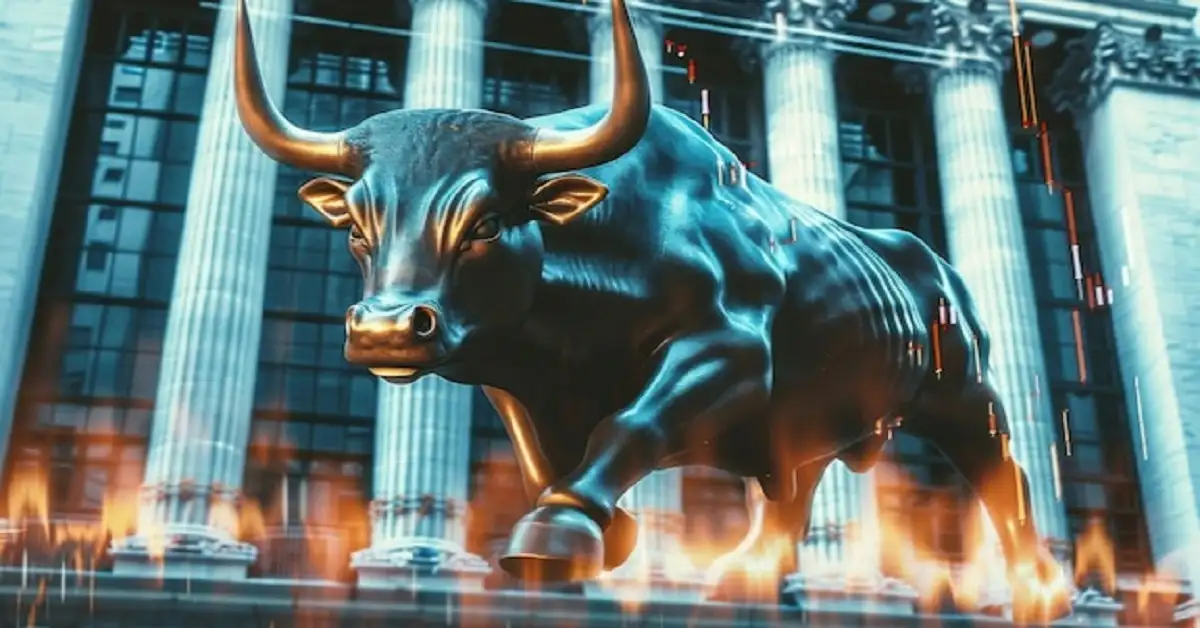Reddit 60k WallStreetBets: The Rise of Retail Trading and the Bloomberg Connection
Introduction
In the world of finance, 2021 will be remembered as the year when Reddit’s WallStreetBets (WSB) transformed the stock market. A group of retail investors—ordinary people, often with little financial background—came together on the WallStreetBets subreddit, building a movement that challenged institutional investors and hedge funds. The most significant catalyst was the GameStop (GME) short squeeze, but it wasn’t just about a single stock. WallStreetBets revolutionized how people engage with the stock market, and in the process, it attracted a massive following. With over 60,000 active members at its height, WallStreetBets became synonymous with high-risk, high-reward trading strategies, often focusing on short squeezes, options trading, and meme stocks. Bloomberg and other financial media outlets began covering the movement, recognizing its impact on global markets.
WallStreetBets: A Brief Overview
WallStreetBets, a subreddit created in 2012, was relatively obscure for much of its existence. It was originally a space for amateur traders to share stock tips, memes, and strategies—usually revolving around risky trades, particularly options. What set WallStreetBets apart from other financial forums was its irreverent, often provocative tone. The users adopted a culture of embracing high risk, with sayings like “YOLO” (You Only Live Once) becoming a mantra for many.
As more users gravitated to WallStreetBets, the forum gained attention for its unique take on financial markets. Unlike traditional financial advice that emphasized caution, diversification, and long-term investment, WallStreetBets users often went all-in on individual stocks. The forum became famous for its embrace of “diamond hands,” a term that signifies holding onto a stock despite volatility, in contrast to “paper hands,” or selling too soon.
The GameStop Saga: A Revolution Begins
The turning point for WallStreetBets came in early 2021 with the GameStop saga. The stock of GameStop (GME), a struggling brick-and-mortar video game retailer, had been heavily shorted by institutional investors, meaning these investors were betting on the stock’s price to fall. However, WallStreetBets users saw this as an opportunity. If they could drive the price of GameStop up, they could trigger a short squeeze, forcing short sellers to buy back the stock at higher prices, thus driving the price up even further.
The result was explosive. GameStop’s stock price surged from less than $20 in early January to an astonishing peak of $483 by the end of the month. WallStreetBets users, many of whom had invested their life savings in GameStop, made fortunes overnight, while hedge funds that had shorted the stock, such as Melvin Capital, suffered billions in losses. The event highlighted the power of retail investors to disrupt institutional finance in ways that had never been seen before.
The Role of Bloomberg in the Narrative
As the GameStop saga unfolded, mainstream financial media, including Bloomberg, took notice. Bloomberg, one of the world’s leading sources for financial news, provided extensive coverage of the WallStreetBets phenomenon. The outlet initially reported on the GameStop short squeeze as a curiosity but soon realized the broader implications. Bloomberg highlighted how a group of retail investors, armed with social media and trading apps like Robinhood, was challenging the traditional dominance of Wall Street’s institutional investors.
Bloomberg’s coverage was instrumental in bringing attention to the broader “meme stock” movement, which included stocks like AMC Entertainment, BlackBerry, and Nokia. These companies, much like GameStop, were targeted by retail investors who saw an opportunity to apply the same strategy. Bloomberg also analyzed the risks involved in such trading, noting that while some retail investors made significant profits, others faced catastrophic losses due to the extreme volatility of meme stocks.
The 60k Surge: WallStreetBets’ Rise in Popularity
During the height of the GameStop saga, WallStreetBets saw a massive surge in new members. The subreddit, which had around 1.8 million members at the start of 2021, grew rapidly, surpassing 9 million users by February of that year. Among these millions were over 60,000 daily active users who engaged with the community by posting memes, sharing stock tips, and discussing trading strategies. This rapid growth was fueled in part by the media coverage from outlets like Bloomberg and CNBC, as well as the viral nature of the story on platforms like Twitter and Reddit itself.
For many new members, WallStreetBets represented an opportunity to challenge the status quo. It was no longer just about making money; it was about taking a stand against institutional investors who were seen as profiting at the expense of the average person. This David vs. Goliath narrative resonated with people worldwide, especially as the COVID-19 pandemic left many feeling disillusioned with the financial system.
Bloomberg’s Criticism and Analysis
While Bloomberg and other financial media outlets covered the excitement surrounding WallStreetBets, they also provided critical analysis. Bloomberg’s financial analysts and columnists frequently warned about the dangers of speculative trading and the risks associated with options trading, which was a common strategy on WallStreetBets. Options trading involves betting on a stock’s future price movement and can lead to significant losses if the market moves in the wrong direction.
Bloomberg also highlighted the regulatory scrutiny that emerged as a result of the GameStop saga. The U.S. Securities and Exchange Commission (SEC) began investigating whether there was market manipulation involved, and congressional hearings were held to examine the role of Robinhood and other trading platforms in the events. Robinhood, in particular, came under fire for halting trading in GameStop at the height of the short squeeze, leading to accusations that it was protecting institutional investors at the expense of retail traders.
The Impact of WallStreetBets on the Broader Market
The influence of WallStreetBets extended beyond GameStop and meme stocks. The success of retail traders in driving up the prices of certain stocks showed that retail investors could collectively move markets, something that was previously thought to be the domain of institutional investors and hedge funds. This shift in power dynamics caused a ripple effect throughout the financial industry.
Hedge funds and institutional investors began to pay closer attention to retail sentiment, with some funds even setting up systems to monitor Reddit and other social media platforms for potential trading opportunities. In addition, the role of trading apps like Robinhood, which made it easier for retail investors to participate in the market, was forever changed. Robinhood saw both a surge in users and a backlash from its decision to halt trading during the GameStop squeeze.
The Legacy of WallStreetBets and Bloomberg’s Continuing Coverage
While the frenzy surrounding meme stocks has cooled somewhat since the height of the GameStop saga, WallStreetBets continues to be an influential force in the world of retail trading. The community’s focus has broadened beyond meme stocks to include cryptocurrencies, tech stocks, and other speculative investments. The lessons learned from WallStreetBets have also influenced how both retail and institutional investors approach the market.
Bloomberg has continued to cover the ongoing influence of WallStreetBets, providing in-depth analysis of retail trading trends and their impact on the market. The financial media giant has recognized the growing power of retail investors and has adjusted its coverage to reflect the democratization of trading that WallStreetBets represents.
Conclusion
The story of Reddit’s WallStreetBets and its 60k active user surge represents a seismic shift in the world of finance. What started as a small community of traders sharing risky strategies has evolved into a movement that challenged the very foundations of Wall Street. With media outlets like Bloomberg documenting the phenomenon, the WallStreetBets saga has become more than just a footnote in financial history—it’s a symbol of the power that retail investors can wield in a rapidly changing market. The rise of WallStreetBets has forever altered the relationship between retail and institutional investors, creating a new landscape where the line between professional and amateur trading is increasingly blurred.



